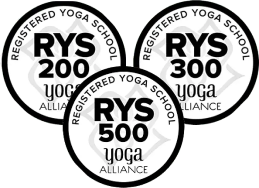
Jnana Yoga, also known as the “Yoga of Knowledge” or “Yoga of Wisdom,” is one of the four main paths in yoga. While other yoga paths like Bhakti Yoga focus on devotion, and Karma Yoga on selfless action, Jnana Yoga places much importance on knowledge and understanding as the means to spiritual liberation, otherwise termed as moksha. It involves a deep process of self-inquiry to uncover the truth of who we are. For those who seek clarity about themselves and their place in the universe, Jnana Yoga provides a profound path for exploring the mind and spirit.
What is Jnana Yoga?
Jnana Yoga is the philosophical and intellectual path to enlightenment. The word “Jnana” in Sanskrit means knowledge, and in the context of Jnana Yoga, it will mean knowledge of the Self, or Atman, and of the ultimate reality, Brahman. Jnana Yoga is based on the method of inquiry into oneself with the fundamental questions “Who am I?” and “What is the truth of existence?” The answers to these questions, Jnana yogis believe, lead to self-realization, which is the understanding that our true nature is not the body or the mind, but the eternal, unchanging consciousness that underlies everything.
Jnana Yoga is based on ancient Hindu scriptures, the Upanishads, and the Bhagavad Gita. These equally attest that avidya, or ignorance, is the root cause of suffering. Removing avidya through knowledge and insight releases one from the constraints of ego and worldly attachments, allowing one to realize unity with Brahman, which is regarded as the ultimate truth.
Benefits of Jnana Yoga
The jnana yoga benefits are enormous to the practitioners of it:
- Self-Realization: The ultimate goal of Jnana Yoga is self-realization, wherein one understands the true nature of self – and feels freedom from the cycle of birth and death. It brings the wisdom that we are not separate individuals but a part of universal consciousness.
- Mental Clarity and Focus: Jnana Yoga promotes profound inquiry and meditation to awaken the keen intellect and heightened mental clarity. It thus helps an individual think more clearly and make better decisions, knowing the deeper purpose of life.
- Detachment of Worldly Desires: Jnana Yoga teaches that worldly desires are transient and the very roots of evil. Unattached, one may live comfortably and keep one’s mind at ease whatever happens.
- Mental Stability: A better understanding of the nature of the Self and the impermanence of the world makes emotional challenges in life easier to confront. People practicing Jnana Yoga are often resilient and emotionally balanced when facing situations in life that may prove too difficult to handle.
- Inner Peace: Jnana Yoga brings peace into people’s lives because it develops an understanding that the true Self lies beyond all changes and hence is unchanging, with unshakeable inner calm.
How to Practice Jnana Yoga?
Jnana Yoga does not perform the asanas, or postures, which are used in some of the other forms of yoga. Based on self-inquiry, meditation, and contemplation, it is a mental and spiritual discipline. The following are steps to perform Jnana Yoga:
- Shravana: The first step in Jnana Yoga is to study the spiritual scriptures that guide the practice. The practitioner reads texts such as the Upanishads and the Bhagavad Gita and listens to the teachings of spiritual teachers or gurus. What is to be acquired from these texts and teachers is wisdom and knowledge about the nature of the Self and the universe.
- Manana: In this, the reflection on the part of the practitioner is after the knowledge is acquired. One goes over what has been taught, questioning and cross-examining it in the light of experience. The whole idea here is to internalize what one has been taught and can relate to real-life situations to develop a better understanding of oneself.
- Vairagya: Along with inquiry, the student builds detachment toward worldly desires and emotions. By making a realization that worldly pleasures are temporary and the only permanent happiness is the self-realized state of the practitioner, it enables them not to get disturbed by ups and downs in life. Detachment does not mean withdrawing from life but keeping inner freedom from attachments.
- Dhyana: Meditation constitutes another important constituent of Jnana Yoga. During meditation, practitioners quiet their thoughts, focus on their inner selves, and strengthen their concentration. This exercise calms mental problems and gets the practitioner closer to discovering his true nature.
- Nididhyasana: The last stage is to live with the wisdom gained through knowledge and inquiry, embracing the truth in daily life and viewing everything through the self-realization perspective. It is the insight that true nature is pure consciousness that exists independent of all influences outside of humans.
Conclusion
Jnana Yoga is a deeply spiritual practice that allows the practitioner to realize their true nature and, hence, to attain spiritual liberation. It requires firm dedication and intellectual inquiry into the deepest facts of existence, to detach attachment through meditation. One of the most difficult ways since it is centered on intellectual thought, yet the benefits are the highest possible: peace, wisdom, and ultimate liberation from the cycle of suffering.
Jnana Yoga is one of the most transformative practices that a person who desires to realize one’s deeper self and is drawn to the intellectual and spiritual components of life can engage in. It is through such a path that one can overcome the delusions of the phenomenal world and come into contact with the timeless truth within.








